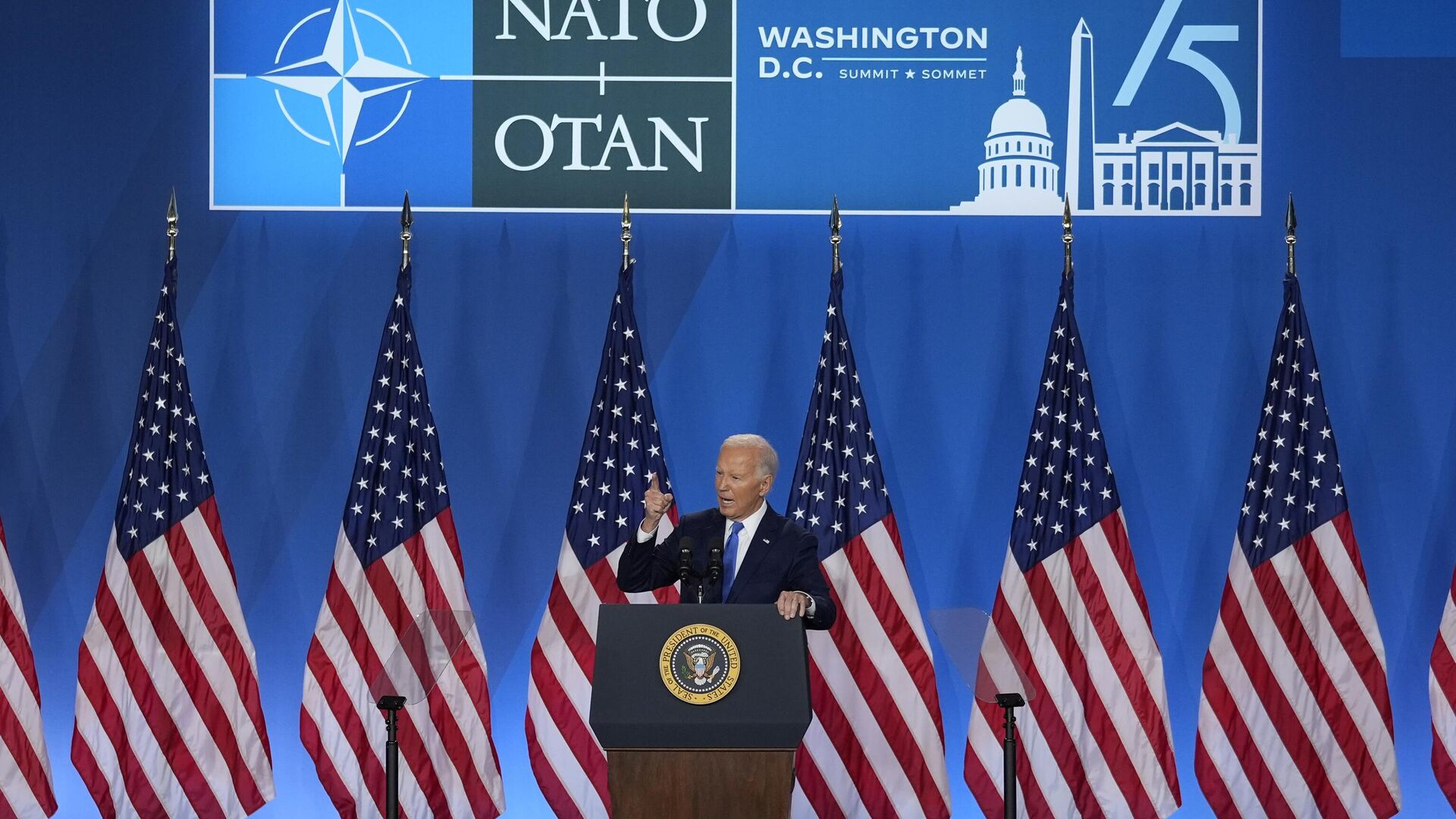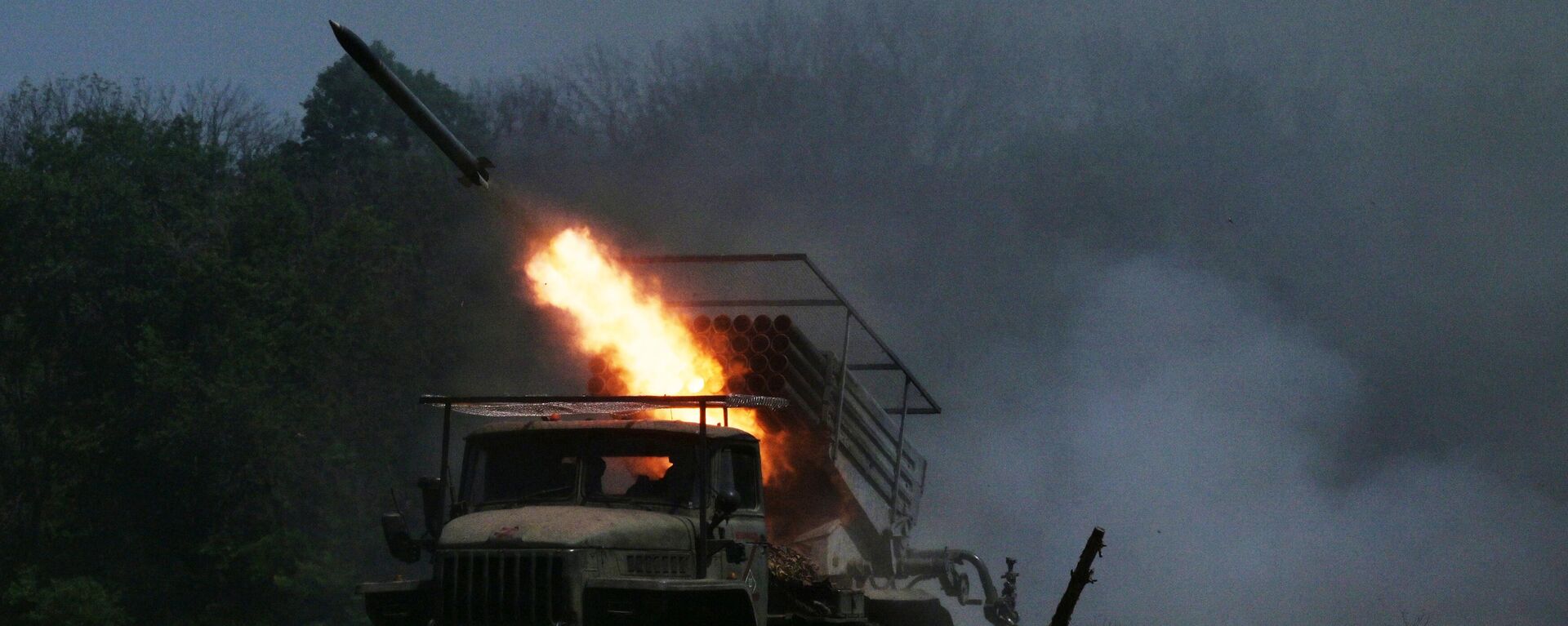https://en.sputniknews.africa/20240712/africas-relationship-with-intl-community-still-in-superior-inferior-form-ugandan-scholar-1067479366.html
Africa's Relationship With Int'l Community Still in 'Superior-Inferior' Form: Ugandan Scholar
Africa's Relationship With Int'l Community Still in 'Superior-Inferior' Form: Ugandan Scholar
Sputnik Africa
On Wednesday, NATO issued a joint Washington Summit Declaration detailing the Alliance's initiatives to increase its presence in the Middle East and Africa... 12.07.2024, Sputnik Africa
2024-07-12T19:19+0200
2024-07-12T19:19+0200
2024-07-15T12:12+0200
opinion
africa insight
middle east
north atlantic treaty organization (nato)
sputnik africa
ukraine
europe
volodymyr zelensky
military
security
https://cdn1.img.sputniknews.africa/img/07e8/07/0c/1067466803_0:160:3072:1888_1920x0_80_0_0_5fae75b7d81a6d000307c89c80d4f9ee.jpg
Africa's dynamic with the international community continues to be hierarchical, as evidenced by the lack of African representation at the recent NATO summit, Dr. Anne Abaho, International Relations and Security Studies Lecturer at Nkumba University, Uganda, told Sputnik Africa.Such a situation only underscores how "underutilized, underrated, and underappreciated" Africa is on the global stage, she added.Why does the Alliance want to expand its presence on the continent? Adaho reckoned that there are three reasons for that. NATO probably wants to prevent threats originating from Africa that could impact Europe. Additionally, it is likely that NATO is leveraging its military capabilities to gain economic advantages on the continent, she said.However, the scholar concluded this part of the discussion with an open question: Considering the historical legacies of colonial rule, conflict, and state mismanagement, is this truly what Africa needs?The second big topic of discussion was Ukraine, or rather NATO’s approach to this country and the consequences of Western policies. The Alliance’s attempts to “heavily militarize” Eastern Europe, among other things, caused a conflict in Ukraine because Russia, like any other country, will defend its interests, according to Adaho.During the summit, NATO pledged to continue supporting Ukraine's security and democratic reforms. However, Abaho described these reforms as “external” and therefore not effective.Moreover, NATO is still collaborating with Zelensky despite the fact that his term officially ended in May, because the bloc "will be looking at where their interests are; they arrive with someone who is pushing for their agenda," the speaker concluded.
https://en.sputniknews.africa/20240711/nato-has-no-interest-to-find-negotiated-solution-in-ukraine-only-dragging-crisis-un-official-says-1067450681.html
middle east
ukraine
europe
Sputnik Africa
feedback@sputniknews.com
+74956456601
MIA „Rossiya Segodnya“
2024
Christina Glazkova
https://cdn1.img.sputniknews.africa/img/07e7/0b/07/1063380906_0:0:673:674_100x100_80_0_0_79628b4d0cd9f29291a57aa13bbf9e7a.jpg
Christina Glazkova
https://cdn1.img.sputniknews.africa/img/07e7/0b/07/1063380906_0:0:673:674_100x100_80_0_0_79628b4d0cd9f29291a57aa13bbf9e7a.jpg
News
en_EN
Sputnik Africa
feedback@sputniknews.com
+74956456601
MIA „Rossiya Segodnya“
Sputnik Africa
feedback@sputniknews.com
+74956456601
MIA „Rossiya Segodnya“
Christina Glazkova
https://cdn1.img.sputniknews.africa/img/07e7/0b/07/1063380906_0:0:673:674_100x100_80_0_0_79628b4d0cd9f29291a57aa13bbf9e7a.jpg
africa insight, middle east, north atlantic treaty organization (nato), sputnik africa, ukraine, europe, volodymyr zelensky, military, security
africa insight, middle east, north atlantic treaty organization (nato), sputnik africa, ukraine, europe, volodymyr zelensky, military, security
Africa's Relationship With Int'l Community Still in 'Superior-Inferior' Form: Ugandan Scholar
19:19 12.07.2024 (Updated: 12:12 15.07.2024) Christina Glazkova
Writer / Editor
On Wednesday, NATO issued a joint Washington Summit Declaration detailing the Alliance's initiatives to increase its presence in the Middle East and Africa under the pretext of supporting peace operations. It also provides increased security assistance to Ukraine, saying it's on an "irreversible path" toward NATO membership.
Africa's dynamic with the international community continues to be hierarchical, as evidenced by the lack of African representation at the recent NATO summit, Dr. Anne Abaho, International Relations and Security Studies Lecturer at Nkumba University, Uganda, told Sputnik Africa.
"Our contributions do not make much sense to how the international community is run, but the international community wants Africa to appreciate how it is being run, despite the fact that Africa contributes a significant number of countries and population," she said.
Such a situation only underscores how "underutilized, underrated, and underappreciated"
Africa is on the global stage, she added.
Why does the Alliance want to expand its presence on the continent? Adaho reckoned that there are three reasons for that.
NATO probably wants to prevent threats originating from Africa that could impact Europe. Additionally, it is likely that NATO is leveraging its military capabilities to gain economic advantages on the continent, she said.
"It is also likely that it is simply doing [...] surveillance and watch-over, just to ensure that they are in charge, they are in control, they are aware of what African governments are doing," the lecturer pondered.
However, the scholar concluded this part of the discussion with an open question: Considering the historical legacies of colonial rule, conflict, and state mismanagement, is this truly what Africa needs?
The second big topic of discussion was Ukraine, or rather NATO’s approach to this country and the consequences of Western policies. The Alliance’s attempts to “heavily militarize” Eastern Europe, among other things, caused a conflict in Ukraine because
Russia, like any other country, will defend its interests, according to Adaho.
She recalled that the West sends weapons to Eastern Europe, the Middle East, and Africa because it produces weapons; that is, the Western military-industrial complex only benefits from this. However, recipient countries ultimately suffer from the proliferation of small arms and their misuse, as well as problems in demining areas.
"The effects that it is going to have are going to be felt by both the states and the people themselves. It's going to be a compromise on people, a compromise on the state, a compromise on governance institutions, a compromise on the shift to democracy, a compromise on so many things," she added.
During the summit, NATO pledged to continue supporting
Ukraine's security and democratic reforms. However, Abaho described these reforms as “external” and therefore not effective.
"No matter the support to the reforms, not much may come out on the ground, given that history has indicated to us that reforms which are not people-oriented, reforms where people do not have local ownership, reforms where people have not had an input, and you simply drop these reforms," she said.
Moreover, NATO is still collaborating with Zelensky despite the fact that
his term officially ended in May, because the bloc "will be looking at where their interests are; they arrive with someone who is pushing for their agenda," the speaker concluded.



